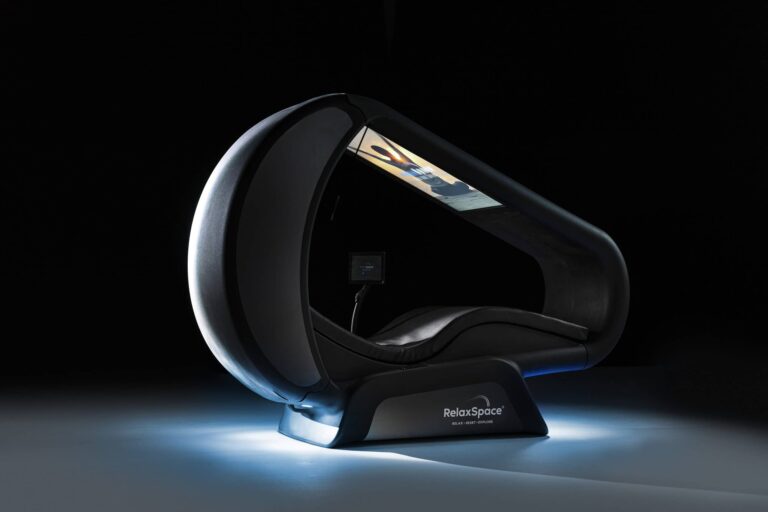Hindrances New Moms May Face During Their Fitness Journey

Becoming a new mom is a thrilling journey, but getting back into fitness is no less than a challenge. According to the Mayo Clinic, taking care of a newborn can make it hard to squeeze in some exercise. It’s normal for new moms to feel a bit emotional with all the hormonal shifts. There are days when a mother might be worn out and resist a workout.
With sleepless nights, feeding routines, and the constant demands of a newborn, it’s normal to feel unsure about where to begin. Many moms find that their bodies have changed in ways they didn’t expect. Core muscles might feel weaker, joints looser, and energy levels swing from high to low.
Moreover, carving out time and finding the motivation to work out becomes tough. You must know that post-pregnancy fitness isn’t about bouncing back in a flash. You will gradually rebuild your strength, confidence, and energy. This article discusses the obstacles new moms encounter during their fitness journey.
Time Constraints
Time constraints are one of the challenges new moms encounter when getting back into fitness. With a newborn needing constant care, it can feel like there aren’t enough hours for a workout. Exercise often gets pushed to the bottom of the list between feeding, changing diapers, and trying to grab a nap.
Even when you do manage to carve out a moment for yourself, you might feel too drained to work out. The essential thing to remember is that fitness doesn’t have to mean spending hours at the gym.
Short workouts at home or a brisk walk with the stroller can make a difference. You must be flexible and gentle with yourself. Finding ways to move whenever you can helps you stay active without being stressed.
Constant Fatigue
Constant fatigue can hold back many new moms trying to get back into their fitness routine. Frontiers states that new mothers often battle postpartum fatigue (PPF). It shows a significant drop in physical and mental energy. Studies indicate that between 37% and 64% of new mothers feel fatigued around 5 to 6 weeks postpartum. The number drops from 25% to 67% at 12 to 24 weeks, and to 18% to 66% at 1 to 2 years after childbirth.
After giving birth, your body is busy healing from labor. You face pesky hormonal shifts that can drain your energy. It’s normal to feel worn out during the day or experience mental fatigue. The tiredness comprises emotional and mental exhaustion that can make working out feel like a big task.
It’s crucial to understand that this is a common and often temporary phase. Tuning into your body and reaching out for support are essential steps. It enables you to regain your energy and ease back into exercising.
Health Complications
Health issues like urinary incontinence can throw a wrench in the fitness plans of new moms. Many women suffer from vaginal prolapse after childbirth. Women who have given birth vaginally face a greater risk of developing this condition. The reason is that muscles and tissues supporting the pelvis can weaken during delivery.
Pelvic organ prolapse is a medical issue managed with different treatment methods, including the use of surgical mesh. However, potential complications are associated with mesh, such as pain and infection.
Thankfully, there are safer alternatives. What can be used instead of mesh for prolapse? You might find that alternative treatments like pelvic floor exercises can be both safer and more effective compared to traditional surgery.
TruLaw states that companies behind faulty transvaginal mesh implants are required to pay for damages. The aftermath might include medical expenses, lost income, and the pain and suffering experienced by those affected.
Vaginal prolapse can lead to those awkward moments of leaking urine when you laugh, sneeze, or try to exercise. While urinary incontinence often heals as the body recovers, some women find that the symptoms stick around. In many cases, lifestyle changes help address the issue. Support can make a difference in reclaiming fitness and overall quality of life.
Childcare Needs
Finding time for fitness can be a real struggle for new moms juggling childcare. According to the National Institutes of Health, navigating the postpartum phase can be quite challenging for women as they shift into motherhood. New moms manage changes in their mental and physical health. They also have the responsibility of caring for a little one.
There is a significant lack of support for new mothers. It can leave many feeling confused about their bodies after giving birth, often resulting in mental distress.
With a little one relying on you for everything, getting even a few minutes for yourself can seem demanding. Many gyms don’t provide childcare. Hiring a babysitter to fit in a workout can be impractical and costly. So, it’s no wonder that exercise often takes a backseat to baby care. Your child’s needs are the priority.
You can continue your fitness goals with a mindful strategy. Some moms get creative, working out while their baby sleeps. They join mom-and-baby fitness classes or carry quick home workouts with their little one. Flexibility and imagination enable you to stay active, even with childcare responsibilities.
Lack of Motivation
It’s normal for new moms to struggle with motivation on their fitness journey. Tommy’s notes that our identity is influenced by the choices we make about lifestyles. Having a baby can turn those choices on their head.
It doesn’t mean you are no longer in charge of who you are, but suddenly, you have another person to consider. Someone whose needs come first. It can shift your priorities, alter your values, and sometimes even change how you perceive yourself.
After welcoming a baby, everything changes. Your little one demands so much attention, and your needs get pushed aside. The chaos of unpredictable schedules and the emotional ups and downs of new motherhood can drain your enthusiasm for working out.
It can be discouraging if you’re not seeing results instantly or if your body feels different. Just remember, feeling this way is okay. The trick is to set small, achievable goals and celebrate every little victory. Be gentle with yourself, your motivation will return in time.
FAQs
What are the barriers to physical activity in the postpartum period?
After giving birth, new moms frequently face many challenges that make it hard to stay physically active. The biggest hurdles are often a lack of time, fatigue from sleepless nights, and difficulty affording childcare. Moreover, emotional factors and worries about body image can add to the struggle of getting back into a fitness routine.
When should new moms start working out?
Most new moms can start with light activities, such as walking and pelvic floor exercises, within a few days post-birth. If you want more intense workouts or gym routines, it is best to wait until after your six-week postpartum check-up.
What are the challenges of postpartum?
The postpartum period can throw a lot at new moms, combining both physical and emotional challenges. Many women feel utterly exhausted, struggle with restlessness, and deal with body aches. On the emotional front, mood swings, anxiety, and postpartum depression can be prevalent. Adapting to new routines and managing relationship shifts can add to the pressure.
New moms face a variety of challenges on their fitness journey. But progress is achievable with a bit of patience and a flexible approach. Paying attention to your body and setting realistic goals can help ease the process. Consistency, tolerance, and support from family and friends can help you slowly regain your strength and confidence. Celebrate your achievements and remember that your well-being is as crucial as your baby’s.


